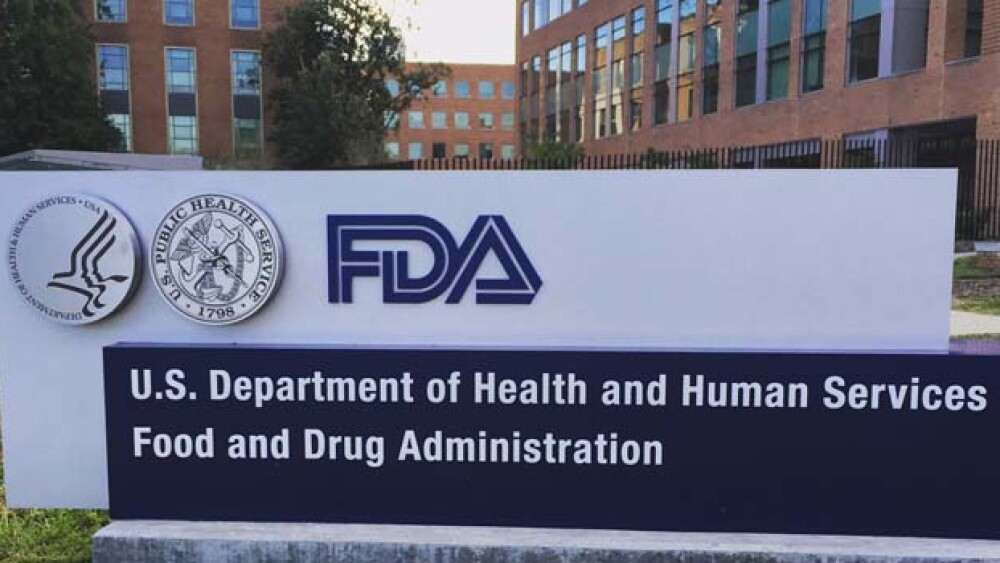Although there are no U.S. Food and Drug Administration (FDA) approvals expected for this week, there are two Adcom meetings. Advisory Committees are used by the agency to obtain independent expert advice on scientific, technical, and policy matters.
Although there are no U.S. Food and Drug Administration (FDA) approvals expected for this week, there are two Adcom meetings. Advisory Committees are used by the agency to obtain independent expert advice on scientific, technical, and policy matters.
Cordis’ INCRAFT AAA Stent Graft System
On Tuesday, June 12, 2018, there will be an Adcom meeting of the “Circulatory System Devices Panel of the Medical Devices Advisory Committee,” from 8:00 a.m. to 6:00 p.m. held at the Hilton Washington, DC in Gaithersburg, Maryland. The meeting will be to discuss and make recommendations, as well as vote on the premarket approval application of Cordis’ INCRAFT AAA Stent Graft System.
Part of the company’s Aortic Portfolio, the Stent-Graft System is designed to treat infrarenal abdominal aortic aneurysms. It is called an “advanced Endovascular Aneurysm Repair (EVAR)” technology.
The application is based on the company’s Inspiration trials. It met its primary safety and effectiveness endpoints, but there were higher than anticipated adverse events. The meeting will discuss how the safety issues impact the device’s long-term safety and effectiveness in addition to its benefit/risk profile.
The product has been cleared for use in Canada and Europe since 2014. According to FDA documents, the system had failed to be approved in the U.S. in July 2015, April 2016 and July 2017, requesting additional data. “Due to the time required to understand the significance of these events, including the completion of the root cause analysis, clinical study data well beyond the one-year primary analysis was captured and reported. These data included additional observations of effectiveness-related events, most notably new observations of transrenal stent fractures, Type 1 endoleaks, aneurysm expansion, graft occlusion and other patency-related events, and limb migrations.”
Cordis is a subsidiary of Cardinal Health.
PneumRx’s PNEUMRX ELEVAIR Endobronchial Coil System
On Thursday, June 14, 2018, the “Anesthesiology and Respiratory Therapy Devices Panel of the Medical Devices Advisory Committee” will meet at the Gaithersburg Holiday Inn from 8:00 a.m. to 6:00 p.m. The committee will be discussing PneumRx’s premarket approval application for the PNEUMRX ELEVAIR Endobronchial Coil System. The device is investigational in the U.S.
The device is used as a minimally invasive, bronchoscopic approach to reducing hyperinflation in severe emphysema patients. They are implants intended to improve exercise capacity, lung function and patient quality of live who have severe emphysema. It is made up of a sterile single-use Coil implant and a sterile, disposable delivery system made up of a cartridge, catheter, guidewire and forceps. It is deployed using a bronchoscope.
In an FDA document describing waivers for one of the panelists, it noted, “A successful, robust discussion of this subject matter by the Panel requires participants with expertise in lung volume reduction, lung transplants and pulmonology. This subject matter requires more clinical experts than the Anesthesiology and Respiratory Therapy Devices Panel’s current composition of pulmonologists, thoracic surgery and chronic obstructive pulmonary disease experts. Because this is such a unique area of discussion, there is a need for additional relevant expertise to supplement the standing members.”
The document further describes the difficulties the agency has had in finding experts specific to this device for the Adcom, stating, “Thus far, the division has eliminated approximately 10 lung transplant and pulmonology experts due to unavailability and conflicts. Because a limited number of clinical centers offer lung transplantation programs, there is much competition among lung transplantation studies to find sites and investigators to perform their medical research, resulting in a significant proportion of lung transplantation experts with direct involvement with the device sponsor or its competitors. Therefore, it is challenging to find an expert in this field who is not currently directly involved with the device sponsor or one of its competitors.”





